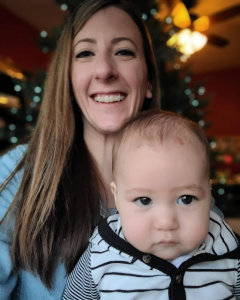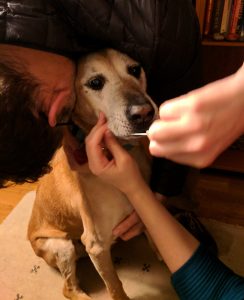
Understanding our health through genetic individuality has become a reality within reach of the general population. The Genetic Support Foundation (GSF) is fully committed to helping people get clear information when making important decisions in areas such as preconception, cancer and treatment, and other health concerns. Katie Stoll, executive director of GSF and certified genetic counselor, knows that direct-to-consumer (DTC) testing kits like 23andMe or Ancestry.com are sold as fun ways to find out family history and/or various health reports. The team at GSF wants to make sure you are careful when sending for DNA testing. “Be cautious. Your DNA information is sensitive,” Katie advises.

There are actually a number of concerns to address before you swab your cheek or spit into a tube and send it to a DTC laboratory. Let’s say you took the time to read the 32+ pages of terms of service and privacy policies before sending off your test. Good for you. One of the terms is that that the terms can change at any time. It might be interesting to know that HIPAA (Health Insurance Portability and Accountability Act) does not apply to applications like 23andMe. HIPAA are regulations for the privacy and sharing of your medical information.
That leads to wondering who or what has your genetic information and how might it be used? Collecting data is a lucrative business. You’ve noticed that after visiting a website for vacation ideas, you get ads for other places. My genetic information seems a lot more personal than hotel preferences. Sharing it could be risky.
Maybe you are the family historian. Testing your DNA could provide you with interesting information about the past. That brings us to another big caveat. When you take a DTC genetic test, receive the results, and then read them, you cannot unknow what you read. This is significant. It is even in the terms of service language. These tests are good at identifying people who are or are not biologically related to you. The genetic counselors at GSF have plenty of stories about people finding out their biological father was not the man they lived with as a child. “Sometimes you get a surprise,” says Austin McKittrick, assistant director of clinical operations and also a genetic counselor. People find siblings that before had been unidentified. Such news may be wonderful or could mean total devastation. Are you prepared for such possibilities?
23andMe is also used to identify genetic markers for disease. It is good to be in the driver’s seat of your health, but please know that the information provided by such DTC testing is limited (at best), generally incomplete and can give you a false-positive result or a false negative result. What does that mean?

For example, a gene called BRCA-mutated indicates breast cancer or other cancer risk. This inherited gene can be identified with a test, but DTC testing does not identify all breast cancer genes or even all mutations that may be present in the BRCA genes or other cancer related genes. That means you could test negative and believe you are at no risk, when in fact, you have another mutation. It is also possible that something shows up in your testing to indicate you have a condition, but that is not the full story. If you have a family history concern, the GSF can help you with a comprehensive interview to determine what (if any) testing will be helpful for diagnosis and treatment if necessary. “Most people don’t know how or what to ask,” notes Austin. GSF can also help you clear up your confusions or explain test results. Knowledge is power. One local family experienced life-changing events as a result of testing and help from GSF.
Some parents may be curious about the genetic make-up in their children. “I am apprehensive for DTC tests for kids,” says Rachel Westman, MS, LCGC, a pediatric genetic counselor. Katie concurs, believing that as minors, children cannot make that decision. It is their personal information, and they need to be old enough to decide how to share that information with others or not. “There are so many other things that you cannot test for,” adds Rachel. In the event your child is already experiencing a genetic condition, it could be most helpful to consult with a genetic counselor, such as the competent team at GSF.

“Direct to consumer testing is not a bad thing,” concludes Austin, but advises doing your research ahead of time. Remember that what is sold as light-hearted fun could turn out to be heavy information. You may want to add a grain of salt. Katie swabbed her dog Ginger (posing as a human) to see what results would show up. She also sent tap water. It’s amusing and alarming.
You can call 360-485-0115 or use the GSF website for more information. GSF has a library of articles that you can access at no charge. The GSF Facebook page has video and other content.
The Genetic Support Foundation, a nonprofit counseling service, is located at 201 Caton Way SW, Suite 102 in Olympia. Services are available remotely.
Sponsored
















































